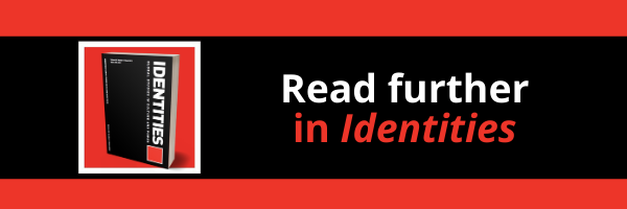|
|
|
Superdiversity and integration are prominent yet contested terms to capture increasing population heterogeneity due to migration and participation by, and inclusion of, migrants in the arrival context. These terms have been criticised for ignoring the implication of established residents in processes of integration and their contestation of migration-based diversity. Yet, to date, limited research has shown how established residents differ in responding to superdiversity and how they conceive of integration.
My Identities article, ‘Towards a differentiated notion of the mainstream: superdiversity and residents’ conceptions of immigrant integration’, sets out to explore variations in established residents’ responses to diversity and the extent to which they consider themselves as playing a role in integrating newcomers. It draws on fieldwork that captured the reactions to the installation of a large asylum seeker reception centre on the outskirts of a large German city. Interviewing residents of the neighbourhood and participating in meetings of the 'local partnership', the article counters the common assumption in the literature that migration-related diversity is either contested or seen as a banal aspect of everyday urban life.
The article presents three main findings:
In summary, my article provides a more differentiated account of residents’ reactions to superdiversity and conceptions of integration. Instead of ignoring the contestation of superdiversity by residents, this research identified the economic concerns residents have in view of increasing migration-based diversity and the strategies of emplacement they employ alongside immigrants in superdiverse urban contexts. Other than posited in critiques of the term integration, this research establishes that integration is not only a policy and scholarly term, but also a term that is mobilised by residents themselves. Surprisingly, established residents do not conceive integration solely as the responsibility of newcomers, but highlight the role of the state and those falling under the category of 'keep calm and do it yourselves integrationists' of established residents themselves.
Image credit: Photo by Jonathan Brinkhorst on Unsplash
Blog post by Maria Schiller, Erasmus University Rotterdam, The Netherlands
Read the Identities article: Schiller, Maria. Towards a differentiated notion of the mainstream: superdiversity and residents’ conceptions of immigrant integration. Identities: Global Studies in Culture and Power, DOI: 10.1080/1070289X.2021.1909358
Explore other relevant Identities articles:
Super-diversity and the bio-politics of migrant worker exclusion in Singapore Diversity as discourse and diversity as practice: critical reflections on migrant women’s experiences of accessing mental health support in London Integration, transnationalism and transnational Islam
0 Comments
Your comment will be posted after it is approved.
Leave a Reply. |
|
Explore Identities at tandfonline.com/GIDE |
|
The views and opinions expressed on The Identities Blog are solely those of the original blog post authors, and not of the journal, Taylor & Francis Group or the University of Glasgow.


